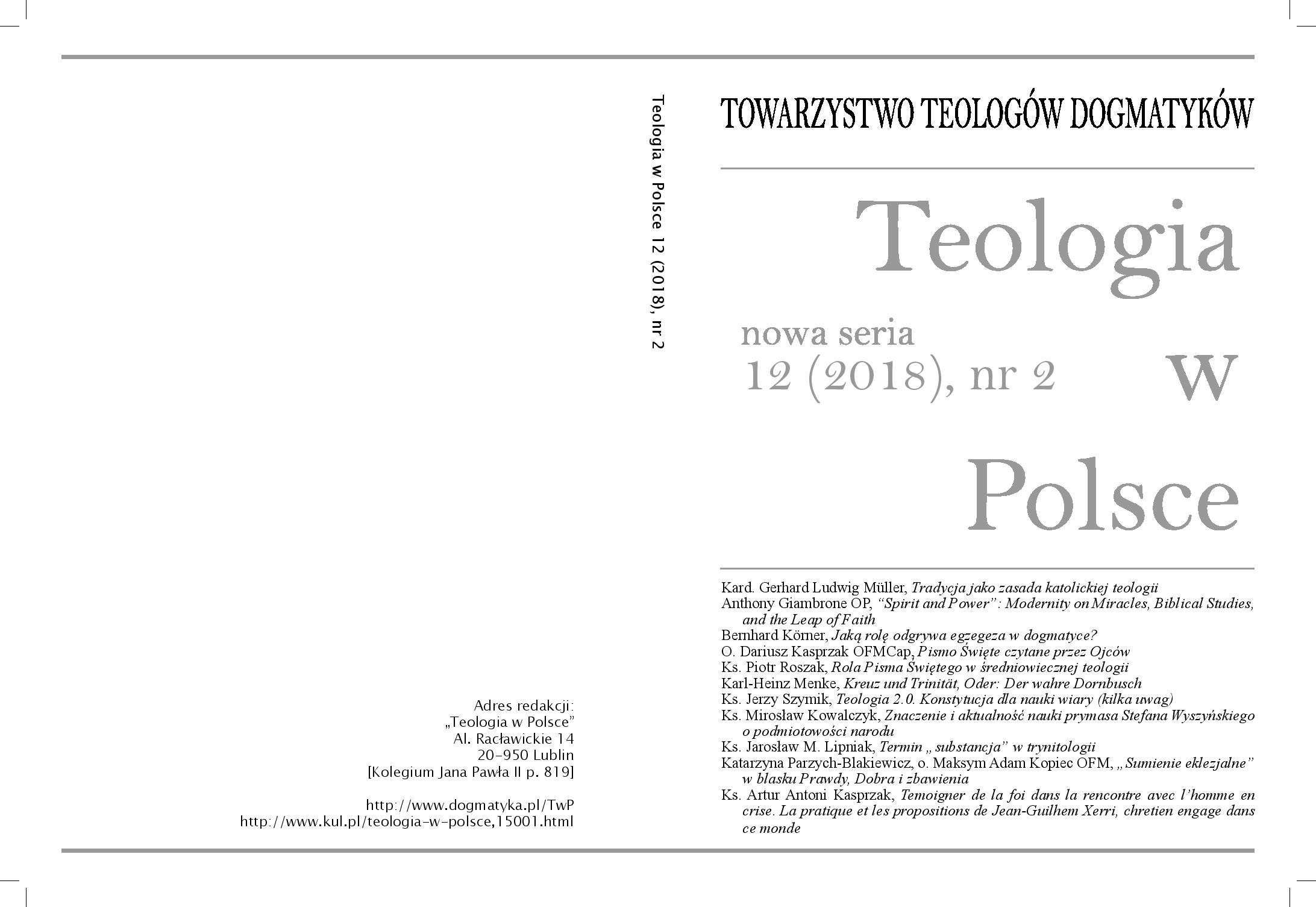Kreuz und Trinität, oder: der wahre Dornbusch
Cross and Trinity or: the Real Burning Bush
Author(s): Karl-Heinz MenkeSubject(s): Christian Theology and Religion
Published by: Katolicki Uniwersytet Lubelski Jana Pawła II - Wydział Teologii
Keywords: Sheol; hell; Holy Trinity; sin; redemption; eschatology
Summary/Abstract: In German theology, even in the context of the cross and the resurrection, sin is barely talked about. By referring to the unconditional forgiveness of God, the Christ event is explained as the revelation of unconditional love. Incarnation and the cross are not seen as essential for defeating sin, but are rather regarded as a revelation of God’s solidarity the people. This view is countered by Menke’s thesis that in the New Testament hardly anything is so clearly attested as that Jesus was crucified „because of our sins” (1 Cor. 15,3). Menke explains sin as the only reality which man himself can create out of nothing; as the reality which God does not want on any account and yet cannot prevent, because he does not revoke the free will he granted man. What can be understood as failure of self-causality of creation on the ‘pre-conscious’ levels of evolution is recognized as sin on the level of human beings who are endowed with consciousness and free will. God is not indifferent to sin, as the writings of the Old Testament testify. But if he wishes to perpetuate the sinner’s free will he can only encounter the consequences of perverted freedom where there is sin: within the boundaries of time and space. Only because of the fact that Jesus is hypostatically united to God the Son as second person of the Trinity, he can convey God himself even to where there is the opposite of communion with God: namely sin. The Old Testament compares the ‘place’ which is the negation of God, i.e. sin, with a prison (‘Sheol’) into which the sinner has locked himself. The Easter event means that with Jesus, God himself reaches out to where the opposite of trinitarian love is, i.e. Sheol. In their confession of faith Christians have confessed that God „descended into hell”. Since then ‘Sheol’ no longer exists. Since then, sin no longer has the power to separate the sinner from God – unless the sinner willfully rejects the Redeemer’s hand, which reaches out to the sinner even in the most hopeless situation. Therefore, Hans Urs von Balthasar distinguishes between the ‘Sheol’, which at Easter was defeated once and for all and the many hells of each individual, who reject the hand of Christ offered to them for reconciliation. Nevertheless can this rejection be revoked at any time by the sinner’s free decision to grasp God’s hand and thus reconcile with the Redeemer.
Journal: Teologia w Polsce
- Issue Year: 12/2018
- Issue No: 2
- Page Range: 85-103
- Page Count: 19
- Language: German

